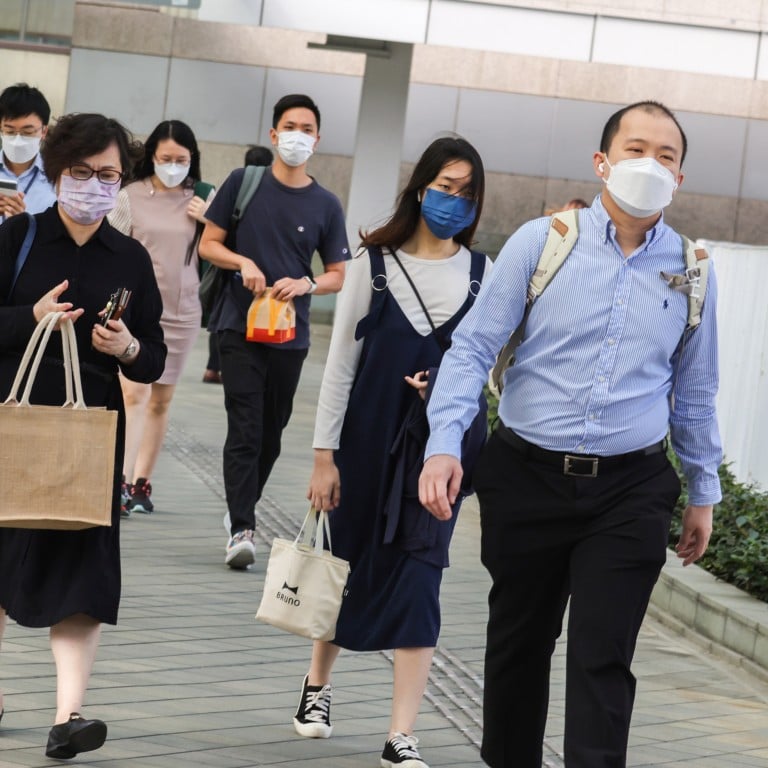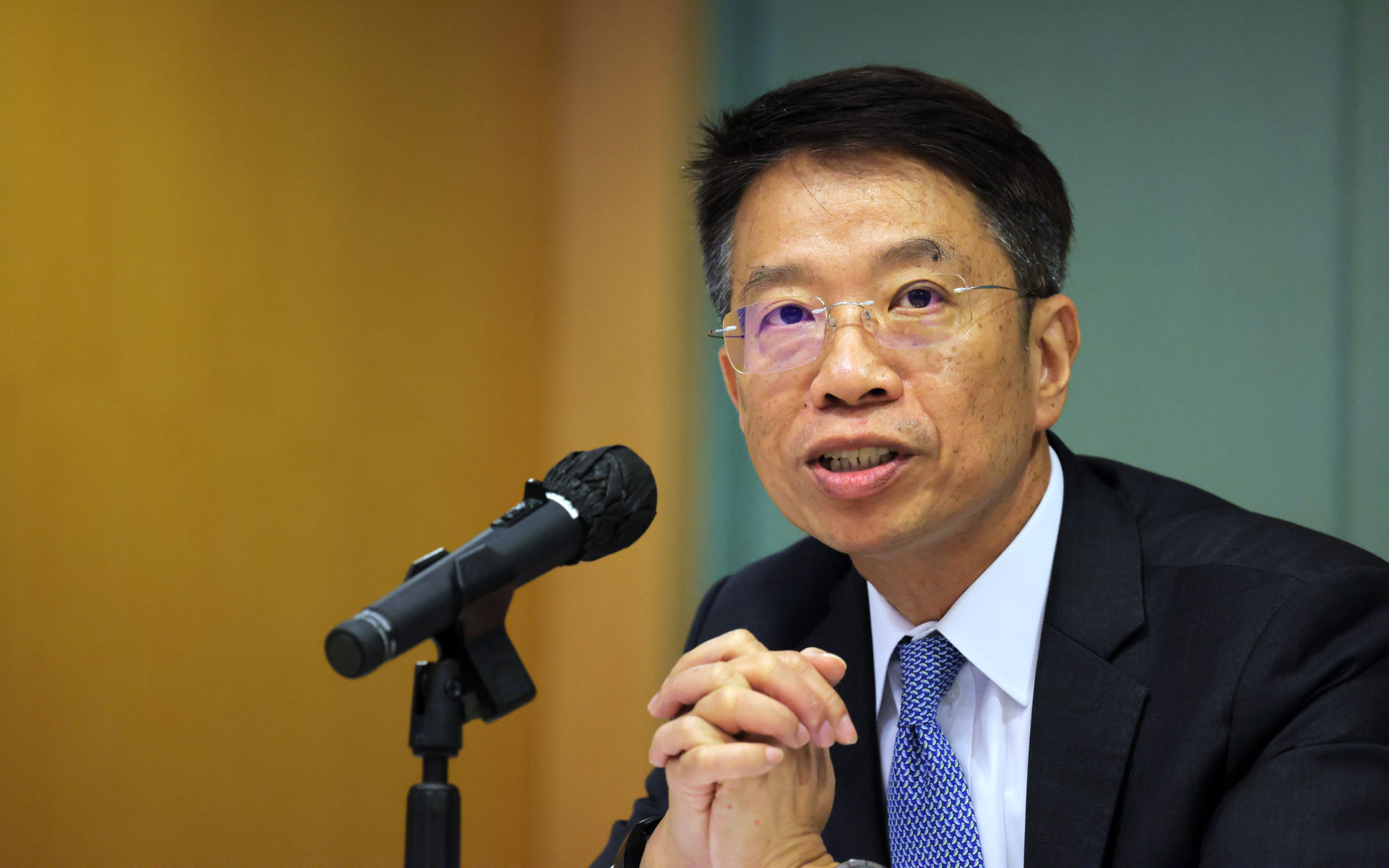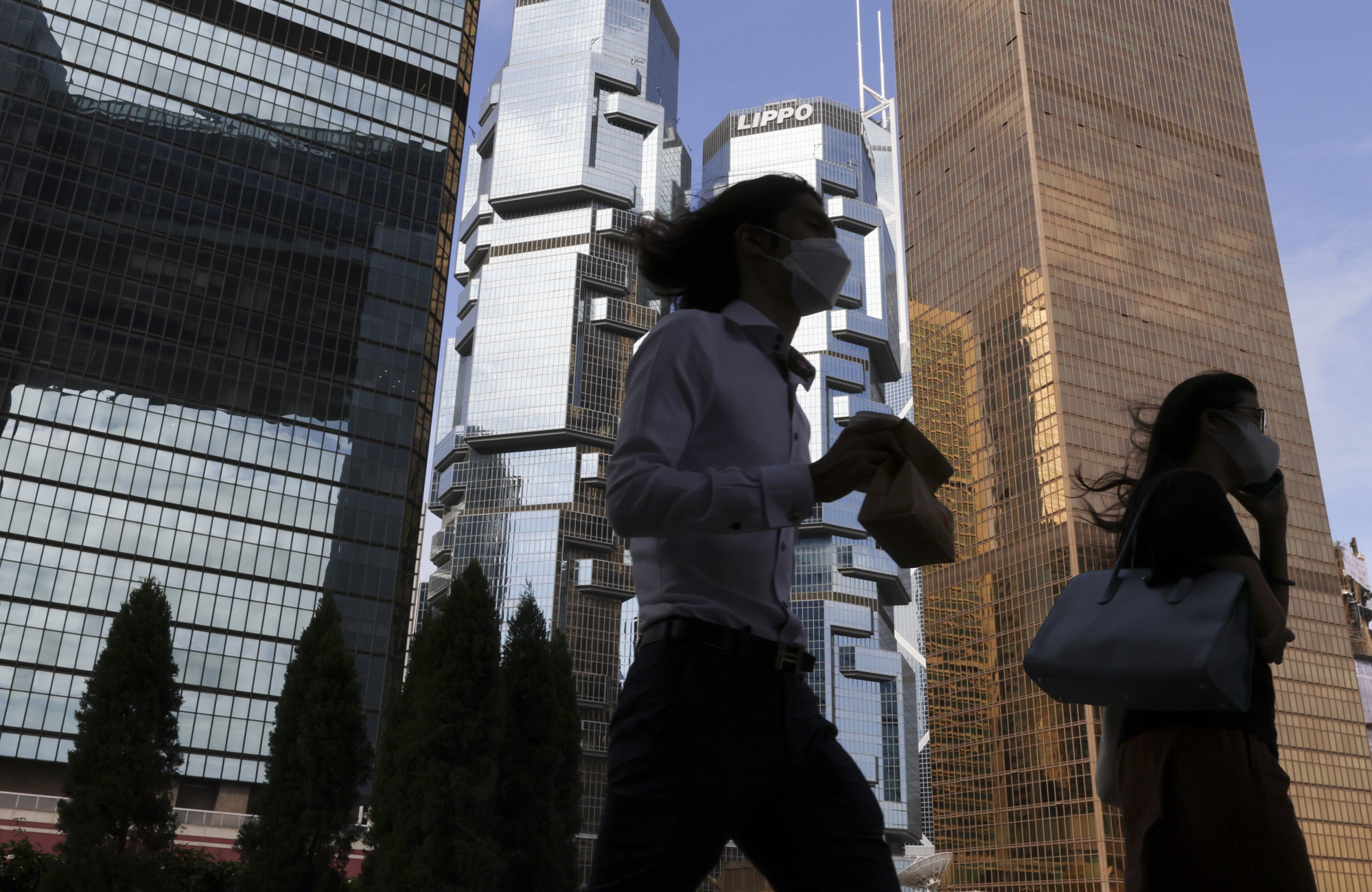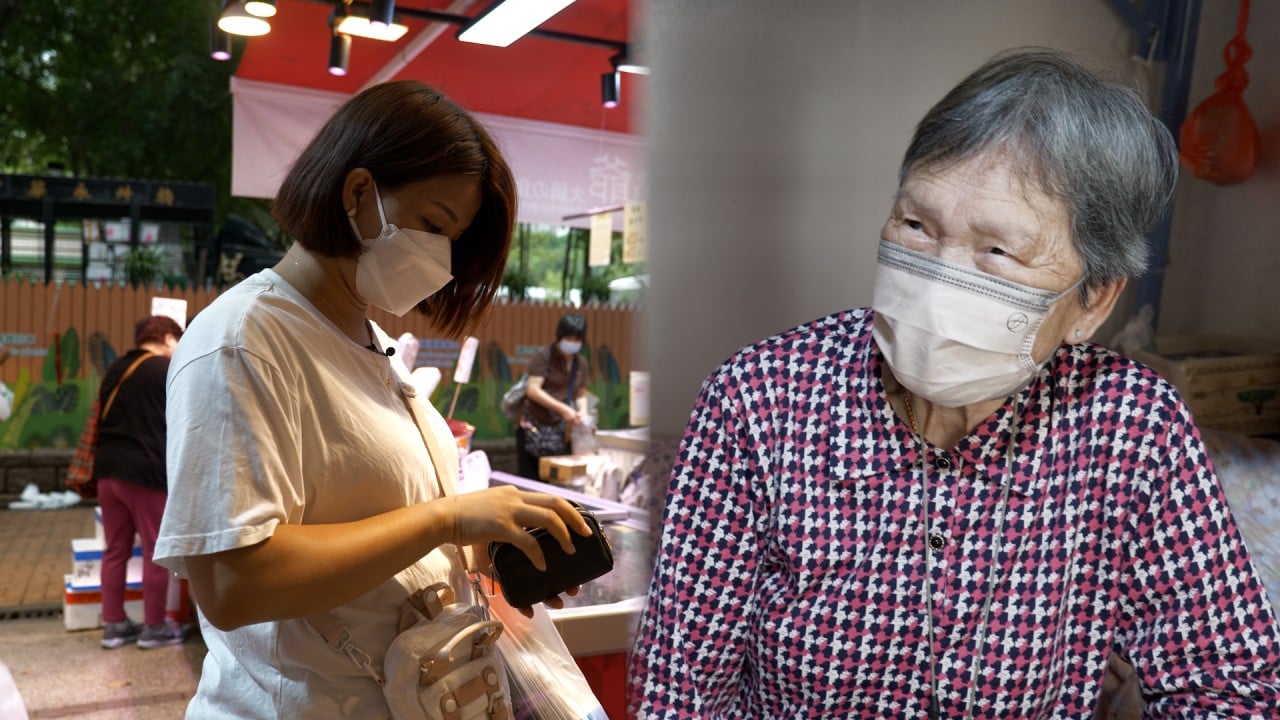
Hong Kong civil servants ‘could get 4.65 per cent pay bump’ as city shows signs of economic recovery
- Sources say pay trend survey could mean civil service pay bumps of 2.87 per cent for high-earners, 4.65 per cent for middle-rankers and 4.5 per cent for junior staff
- Civil service official stops short of confirming figures, stresses survey just one of six indicators to consider before final proposed pay rises
Civil servants could receive a salary increase of up to 4.65 per cent as Hong Kong’s economy is showing signs of recovery and authorities must contend with severe staff turnover and a shortage of talent, the Post has learned.
But two sources close to the administration on Wednesday said some members of the Executive Council, the city’s top decision-making body, had reservations about salary rises of that size as the economic situation was still poor, meaning the final increments might be lower than those suggested by a pay trend survey.
The latest pay trend survey, based on data collected from 108 private companies, suggested increments of 2.87 per cent for high-earners, 4.65 per cent for middle-ranking employees and 4.5 per cent for junior members of the civil service, separate sources said.
Hong Kong’s civil service chief vows to tap workers’ potential as younger ones quit
The suggestions, if approved, would be the highest increases since 2019, following a reduced increment of only 2.5 per cent for all salary bands in 2022 and on the back of a two-year pay freeze amid the Covid-19 pandemic.
Permanent Secretary for the Civil Service Clement Leung Cheuk-man told a press conference the survey was just one of six factors considered when finalising suggested pay rises, adding increments were intended to be “attractive enough to retain staff”.
“We hope our salary levels can be similar to those of private companies … after all, we are competing for the same group of talent, and the government does not want to fall behind,” said Leung, who stopped short of confirming the suggested increases discussed in an earlier closed-door meeting.
Acknowledging that authorities lacked the ability of private companies to offer personalised salary arrangements for employees, Leung said the government would try to offer competitive pay packages.

He emphasised pay increases were essential, but the government would also create a good working environment, offer stable career paths and promotion opportunities for retaining talent in the civil service.
Authorities would also consider the city’s economic status, the cost of living, the government’s fiscal position, staff comments and morale within the civil service before finalising any proposal for pay increases, Leung said.
Government economist Adolph Leung Wing-sing said the city’s fortunes had improved “significantly” during this year’s first quarter due to increases in private consumption and a boost in incoming visitors.
“Inbound tourism and local consumption will continue to be the main drivers of economic growth, while the distribution of consumer vouchers and [government promotional] activities will provide additional support for private consumption,” he said.
Hong Kong Exco approves 2.5 per cent pay rise for civil servants
Leung said he expected the economic growth rate could reach the forecast upper limit of 5.5 per cent year on year if the momentum of recovery continued.
But the pair declined to speculate on the final salary increases for the city’s 180,000 public servants. They said the Pay Trend Survey Committee was expected to consult unions next week and finalise recommendations with the Civil Service Bureau, before Exco made the final call.
Speaking in his capacity as a lawmaker representing the business sector, Exco member Jeffrey Lam Kin-fung said firms were just starting to recover after the pandemic, and a large rise in civil service pay could put pressure on the private sector.
“I won’t comment on whether I agree with the suggested rates at the moment,” he said. “But I hope employees will give bosses room and not create an extra burden by asking for a very big pay rise.”
Fellow Exco member Ronny Tong Ka-wah said it was too early for him to say if he supported the suggested pay rises before a full discussion with other representatives.
Over the past financial year, the salaries of junior, middle-ranking and senior employees in the surveyed private sectors rose by 3.91 per cent, 5.68 per cent and 5.66 per cent, respectively.
The suggested rates for this year were decided after setting aside an annual pay bump for long service.
Currently, the lower civil servant salary band refers to those earning less than HK$24,670 (US$3,148) a month, while the middle tier covers those bringing home HK$24,670 to HK$75,620, and the upper level is for those who surpass that range.
Wednesday’s projections showed senior civil servants could receive an additional HK$2,100 per month, while middle-ranking employees could earn an extra HK$3,500.
Li Kwai-yin, president of the Chinese Civil Servants’ Association and a committee member, said the indicator system had been around for 49 years, and the pay increments had failed to follow the suggested index only one-third of the time.
Number of Hong Kong civil servants in their 30s quitting jobs triples over 5 years
She noted that increment ranges had fluctuated when inflation was high in the 1970s and steadied in subsequent years, adding there were backdated salary rises to reimburse workers. Li said the final pay rises had to at least offset the impact of inflation and labour shortages due to the pandemic.
“Each staff member has been doing a two-person job with a heavy workload,” she said, adding reasonable pay rise increments could boost employee morale as it showed the government “shared its prosperity with civil servants during good times”.

Leung Chau-ting, chairman of the Federation of Civil Service Unions, said he expected Exco to approve the rises in line with pay trend indicators as job-hopping among government workers had increased since private companies were able to offer generous bonuses in addition to base salaries.
Legislator and Federation of Hong Kong and Kowloon Labour Unions chairman Lam Chun-sing urged the government to consider staff morale as “some civil servants had stayed through thick and thin during economic difficulties last year”.
Last year, Exco in a rare move rejected lobbying from unions and only approved a 2.5 per cent pay rise for all government workers, citing the need for prudence amid economic uncertainties.
The rate fell far below the 7.26 per cent increase the committee proposed for senior government workers and the 4.55 per cent rise for middle-ranking ones, but higher than the 2.04 per cent recommended for junior civil servants.
Hong Kong’s civil service chief vows to tap workers’ potential as younger ones quit
The decision was made under Chief Executive John Lee Ka-chiu’s government as his predecessor, Carrie Lam Cheng Yuet-ngor, said it was not suitable for the outgoing administration to handle the matter.
Leung, the permanent secretary, said that while last year’s increment might have been lower than unions’ expectations, there would be no backdated salary rise and Exco would consider each year’s proposals “independently”.
Official figures showed the number of civil servants who resigned jumped to 3,734 during the 2021-22 financial year from 1,863 in 2020-21.
Secretary for the Civil Service Ingrid Yeung Ho Poi-yan had said the trend was “normal within the abnormal”, as the city had grappled with severe staff turnover and talent shortages across different sectors in the past two years.



